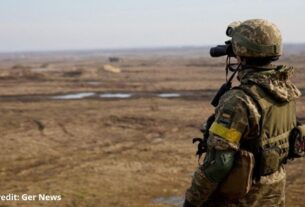Fifteen years on, Iraqis continue to address the tumultuous situation in Baghdad till this day despite the end of Hussein’s regime.
: Back in 2003, on this day, Baghdad slipped into the hands of the Americans, as jubilant Iraqis and Americans took to the streets and celebrated the end of Saddam Hussein’s regime.
The US forces began taking control of key areas of the city including the Presidential Palace, the iconic Al-Rashid Hotel and ministry buildings of the Ba’ath Party. Baghdad was looted to an extent that the consequences were said to be far more severe than the aftermath of the continuous bombing by coalition forces in the city. The National Museum of Iraq, the Saddam Arts Center, Al-Rashid Hotel, Al-Mansour Hotel, Babel Hotel, The University of Baghdad, embassies and state-owned properties were extensively looted by civilians. The city’s Yarmuk hospital witnessed not only the loot of its medical equipments but also the beds in the hospital’s premises. Animals in the Baghdad zoo died of starvation or were stolen for human consumption.
The most iconic event in the fall of Iraq’s mighty capital city was when a statue of Saddam Hussein in the city’s Firdos Square was toppled by the Americans. The whole of the Arab world watched the fall of Baghdad with awe and shock. This was the first time that an Arab capital fell into the hands of the Americans so effortlessly.
While the Arabs questioned the Iraqi national army, their men, their weapons, the absence of resistance to the Americans, there were also a sense of hope that other oppressive regimes in the regions would fall. The reason why the Arabs were particularly disappointed was because of this trap of lies that the Iraqi Information Minister continued to tell the world about Iraq winning over the infidel forces of the United States.
The world, today, quietly remembered the fall of this once-magnificent city. Con Coughlin, UK-based Telegraph’s Defence and Foreign Affairs Editor said, “In Baghdad, I experienced for myself the mood of relief among ordinary Iraqis at the demise of Saddam Hussein – but work still needs to be done to rehabilitate disenfranchised communities.” The Kurds, meanwhile, celebrated the ‘Baghdad Liberation Day’ and remembered the fall of Saddam Hussein’s regime which inflicted horrors on the Kurdish community in Iraq. Gazwan Aldafai, London-based political analyst tweeted, “Today marks the 15th anniversary of the “Fall of Baghdad”. For better or worse, the destiny of all Iraqis has been affected and will continue to meander as we realise the dream of a stable, prosperous and thriving Iraq.”
Rwayda Al Hamd, a resident of Baghdad said, “It is April 9. The day Saddam Hussein was knocked down, 15 years back. I still remember waking up at 5 am to intimidating sounds of US trucks crawling in, breaking the dawn silence. On that day, Baghdad was liberated, fallen or both, liberated to fall.” Aws Saif, another resident of Baghdad said, “I actually do not know what to say about this day. Must I thank god because Saddam’s rule ended? Or must I damn that day because of the bad situation in Iraq since that day.” The overthrow of Saddam Hussein’s regime was supposed to usher in days of glory and peace for Iraq. However, the country has only plunged into more violence and destruction. Baghdad, just like Iraq, still continues to try and restore its magnificent history and past.




